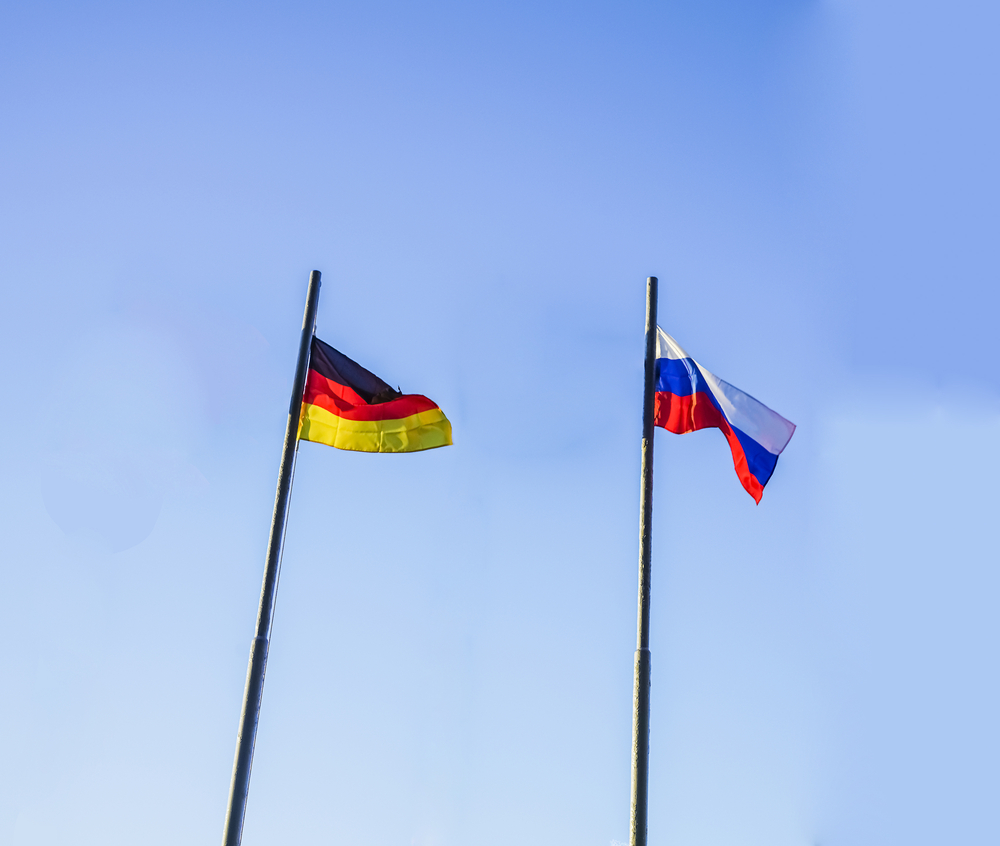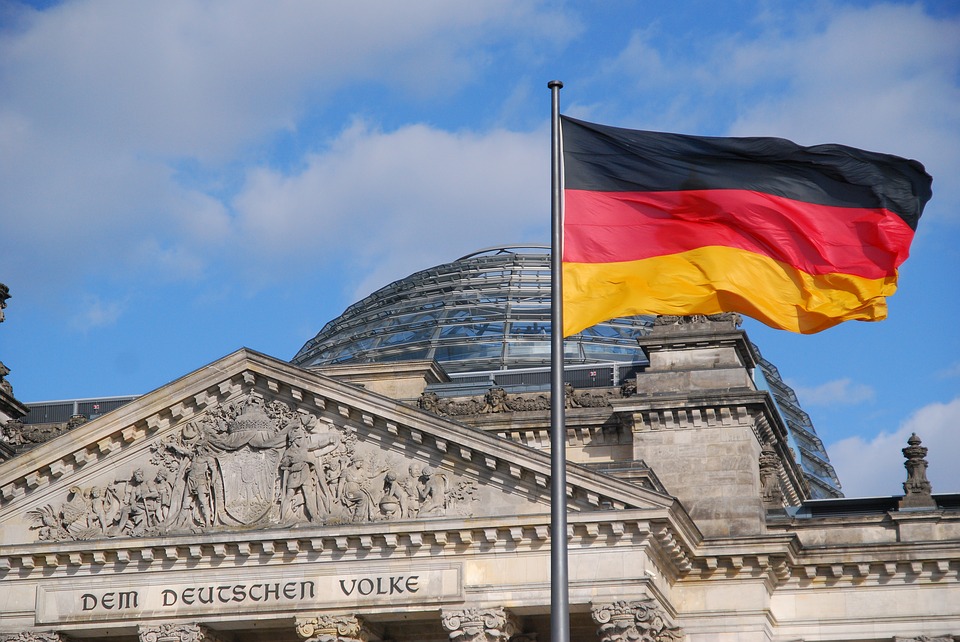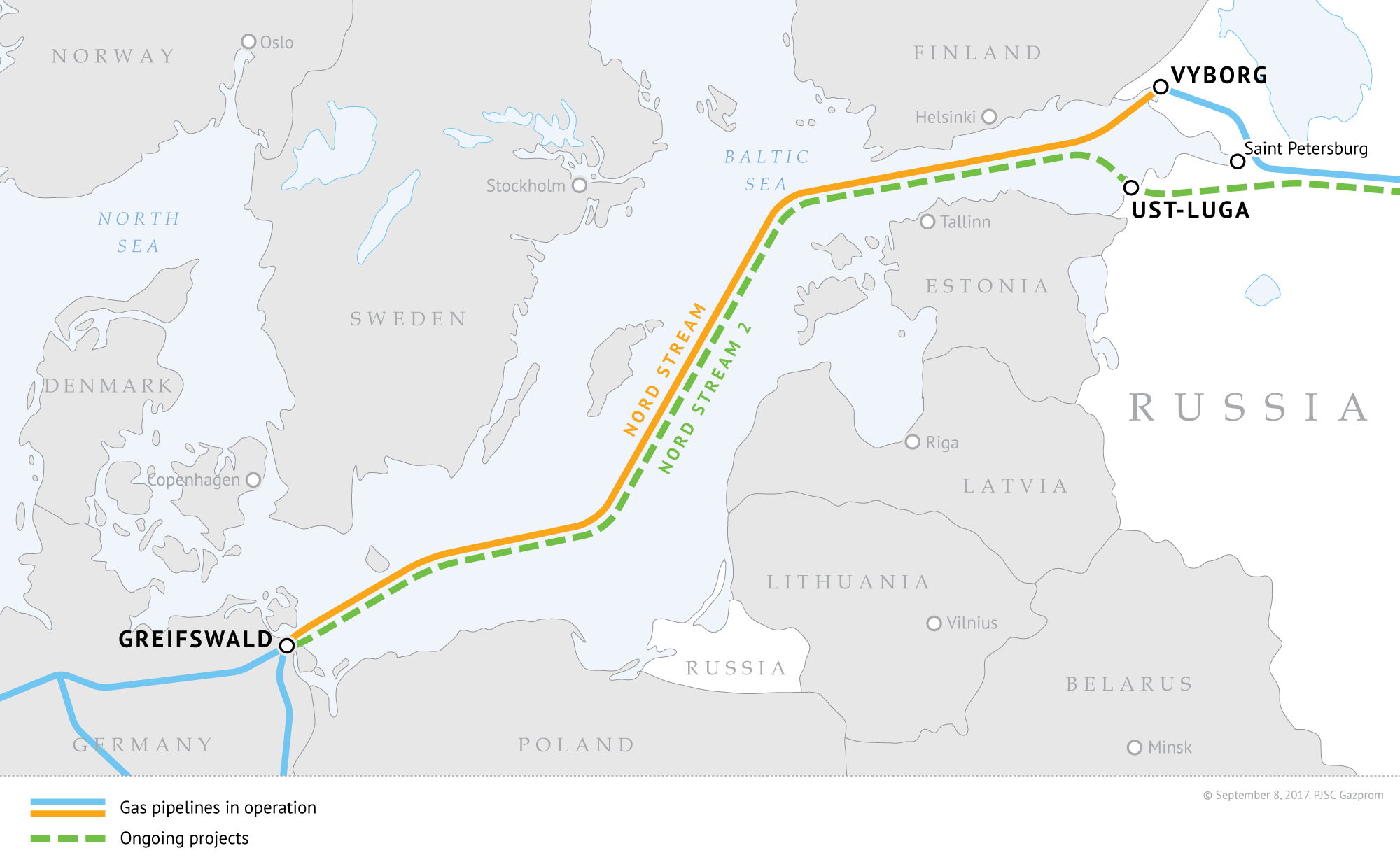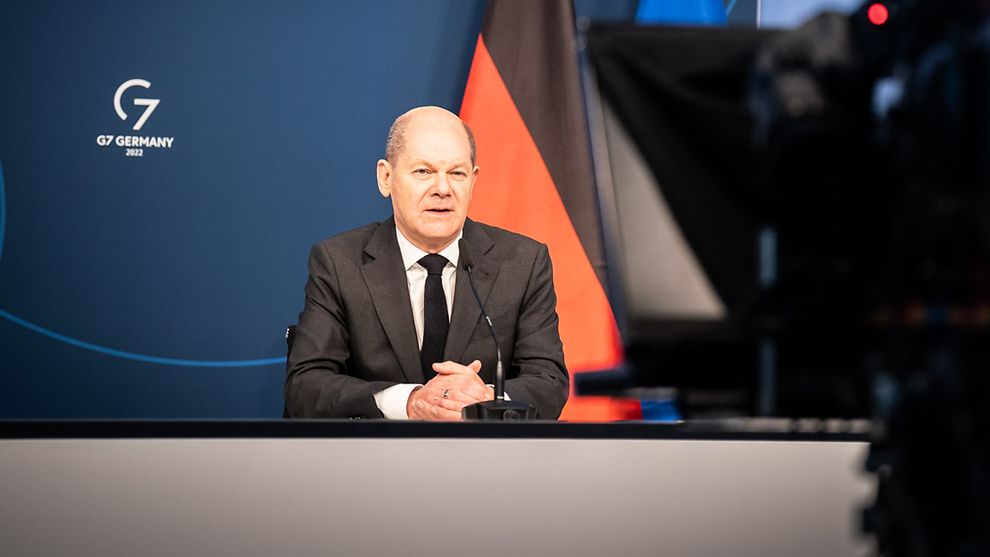The initiator is Ukraine expert Andreas Umland, an analyst at the Stockholm Center for East European Studies. Signatories include Volker Beck (Greens), Ruprecht Polenz (CDU) and the Eastern European historian Karl Schlögel.
While the UK has shipped arms to Ukraine, and others — the Baltics, the Czech Republic, the Netherlands — are contemplating the same, Germany’s position has been reserved. The country has repeatedly blocked Ukraine’s arms purchases from NATO, prohibited others from reselling German-made weapons to Ukraine, and keeps plugging ahead with the Nord Stream 2 pipeline, which many believe is a security risk not only for Ukraine but Europe as a whole.
In an open letter, Germany, “as the largest European economic power, has viewed the Kremlin’s actions critically but largely inactively for the past three decades.” As a key country of the EU, NATO, and the Western community of values, Germany has a special responsibility. This applies “both with a view to containing and sanctioning Russia and in relation to supporting the states dismembered and harassed by Moscow.”
This appeal was originally published in zeit.de
Massive, menacing concentrations of troops on Ukraine’s eastern and southern borders, intensified anti-Western propaganda attacks that do not shy away from lies, and obviously unacceptable demands on NATO and its member states: in the past few weeks, Russia has fundamentally changed the security order that has been in place in Europe since the end of the Cold War on question. In its international self-portrayal, Russia presents itself as a threatened state that urgently needs “security guarantees” from the West. The Kremlin is deliberately shifting the meaning of security promises. The necessity of such guarantees has been discussed since the negotiation of the Nuclear Non-Proliferation Treaty in 1968 with regard to the protection of nuclear-weapon-free and non-nuclear-weapon states.
Today, more nuclear warheads are stored in Russia than in the three NATO nuclear-weapon states USA, Great Britain, and France put together. Moscow maintains a wide range of delivery systems for its thousands of nuclear weapons – from ICBMs to long-range bombers to nuclear submarines. It has one of the three most powerful conventional armies in the world and a right of veto in the UN Security Council. This makes the Russian Federation one of the militarily safest countries in the world.
The Kremlin uses regular and irregular troops, as well as the Russian nuclear threat potential, to wage various wars and permanently occupy territories of former Soviet republics. Not only in Eastern but also in Western Europe and on other continents, the Kremlin is brazenly demonstrating its claim to special rights to assert its interests on the sovereign territory of sovereign states. Bypassing international rules, treaties, and organizations, Moscow hunts its enemies around the world. The Kremlin is trying to undermine political processes, the rule of law, and social cohesion in other countries with hate campaigns and hacker attacks, among other things. The latter is partly done secretly, but with the obvious aim to hinder or discredit democratic decision-making in pluralistic states. In particular, the political and territorial integrity of democratizing post-Soviet transition states is to be undermined.
Pioneer of Russia’s invasion
Germany, as Europe’s largest economic power, has been watching this activity critically but largely inactively for the past three decades. In the Republic of Moldova, Moscow’s revision began as early as 1992, immediately after the collapse of the USSR, with a massive intervention by the 14th Russian army. Their remnants are still officially in Transnistria, despite repeated withdrawal demands from democratically elected Moldovan governments and corresponding promises from the Kremlin. The Federal Republic of Germany did not react appropriately to this or to the following numerous revanchist adventures of Russia in the post-Soviet region and beyond.
Even more: with its foreign and foreign trade policy, Berlin has contributed to the political and economic weakening of Eastern European non-nuclear-weapon states and to the geo-economic strengthening of an increasingly expansive nuclear superpower. In 2008, Germany played a key role in preventing Georgia and Ukraine from joining NATO. In 2019, on the other hand, the federal government tried to get the Russian delegation re-admitted to the Parliamentary Assembly of the Council of Europe, although Moscow had not and has not fulfilled any of the conditions for this highly symbolic act.
For the already fragile Ukrainian-Russian relations, the commissioning of the first Nord Stream gas pipeline from 2011 to 2012, which was superfluous from an energy standpoint, was a disaster. It appears in retrospect to have paved the way for Russia’s invasion of Ukraine two years later. A large part of the existing gas transport capacities between Siberia and the EU was not used in 2021. Nevertheless, the Federal Republic is now preparing to completely eliminate Ukraine’s remaining economic leverage over Russia with the opening of the Nord Stream 2 pipeline.
EU economic sanctions against Moscow since 2014 have been mild and not an adequate response to the Kremlin’s increasingly aggressive stance. Against the background of continuing special German-Russian relations, German development, cultural and educational cooperation with the Ukraine, Georgia, and Moldova created the impression of an Eastern political indulgence trade. It does not diminish the importance of serious mistakes in German Russia policy, such as Putin’s invitation to the Bundestag in 2001 or the modernization partnership from 2008. These and similar German steps, against the background of then and now unwanted Russian troops in Moldova and Georgia, suggested Moscow’s special rights in the post-Soviet space.
Putin’s attack on Ukraine in 2014 seems an almost logical consequence in the light of the preceding 20 years of German policy’s passivity towards Russian neo-imperialism. The popular formula of “approaching by interweaving” has acquired a tragicomic meaning. The geographical rapprochement of the Russian dominions to the borders of the EU has taken place.
The Kremlin is now also questioning the political sovereignty of countries like Sweden and Finland. He calls for a ban on possible future NATO membership not only for post-Soviet but also for Scandinavian states. The Kremlin is frightening the whole of Europe with “military-technical” reactions if NATO – according to Putin – does not respond “immediately” to the far-reaching Russian demands for a revision of the European security order. Russia is threatening an escalation of war if it does not receive “security guarantees” – in other words: the Kremlin’s authority to suspend international law in Europe.
Germany must abandon its “special path”
Against the background of such upheavals, Germany should finally leave its special path in Eastern politics, which is not only perceived as such in Central and Eastern Europe. The crimes of Nazi Germany on the territory of today’s Russia from 1941 to 1944 are not suitable to justify the German reluctance to react to the Kremlin’s revanchism and nihilism under international law. Especially not when – as in the case of Ukraine – it is about a Russian invasion of the internationally recognized territory of another nation that was a victim of former German expansionist efforts. The continued demonstrative violation of UN, OSCE, and Council of Europe basic principles officially accepted by Moscow in Eastern and now also Northern Europe must not be accepted.
Germany’s Russia policy must be fundamentally corrected. Further purely verbal or symbolic reactions from Berlin to Russian revisionist adventures will, as in the past, only tempt the Kremlin into further escapades. As a key country of the EU, NATO, and the Western community of values, Germany has a special responsibility.
In the interests of international security, European integration, and common norms, Berlin must bridge the gap between its public rhetoric and real practice in Eastern Europe finally close. This should be expressed in a series of parallel and concrete measures of a political, legal, diplomatic, civil society, technical, and economic nature. Germany is a major trade, research, and investment partner for both Russia and the EU’s Eastern Partnership countries, as well as a leading power in the Union. It has more, in certain areas far more opportunities to get involved than most other western countries. This applies both to containing and sanctioning Russia and to supporting the states that Moscow has dismembered and oppressed. Berlin must follow up its good words with far more and more effective action than before.
Signed:
- dr Hannes Adomeit, Senior Fellow at the Institute for Security Policy, Christian-Albrechts-University in Kiel
- dr Vera Ammer, Member of the Board of Memorial International and the Initiative Democratic Ukraine, Euskirchen
- Prof. Dr. Oesten Baller, legal scholar, chairman of the German-Ukrainian School of Governance e. V., Berlin
- Volker Beck, MdB 1994-2017, lecturer at the Center for Religious Studies, Ruhr University Bochum
- dr Carl Bethke, research associate at the Chair of East and Southeast European History, University of Leipzig
- Prof. Dr. Florian Bieber, Head of the Center for Southeast European Studies, Karl-Franzens-University Graz
- Prof. Dr. Katrin Boeckh, research associate at the Leibniz Institute for East and Southeast European Studies, Regensburg
- dr Falk Bomsdorf, legal scholar, head of the Moscow office of the Friedrich Naumann Foundation 1993-2009, Munich
- Prof. Dr. Karsten Brüggemann, Professor of Estonian and General History, University of Tallinn, Estonia
- dr Martin Dietze, publicist and first chairman of the Deutsch-Ukrainischer Kulturverein e. V., Hamburg
- dr Jörg Forbrig, Director for Central and Eastern Europe at the German Marshall Fund of the United States, Berlin
- Prof. Dr. Annette Freyberg-Inan, Head of the Chair in International Relations Theory, University of Amsterdam
- PD dr Angelos Giannakopoulos, DAAD long-term lecturer for German and European studies at the Kiev Mohyla Academy, Ukraine
- dr Anke Giesen, Slavist, member of the boards of Memorial International and Memorial Deutschland e. V., Berlin
- Witold Gnauck, historian, managing director of the German-Polish Science Foundation, Frankfurt (Oder)
- dr Gustav C. Gressel, Senior Policy Fellow at the Wider Europe Programme, European Council on Foreign Relations, Berlin
- Irene Hahn-Fuhr, political scientist, member of the management of the Zentrum Liberale Moderne, Berlin
- Ralph Hälbig, cultural scientist, freelance journalist at ARTE & MDR and operator of the website “Georgia & South Caucasus”, Leipzig
- Prof. Emeritus dr Aage Ansgar Hansen-Löve, until 2013 Head of the Chair for Slavic Philology, Ludwig-Maximilians-University Munich
- Rebecca Harms, MEP 2004-2019, former Chair of the EU Delegation to the EURO-NEST Parliamentary Assembly, Wendland
- Pastor Ralf Haska, pastor of the German Evangelical Church in Kiev 2009-2015, Marktleuthen
- Prof. Dr. Guido Hausmann, head of the history department, Leibniz Institute for East and Southeast European Studies, Regensburg
- Jakob Hauter, political scientist, PhD student at the School of Slavonic and East European Studies, University College London
- dr Richard Herzinger, freelance journalist, author and operator of the website “hold these truths”, Berlin
- dr Maren Hofius, research associate at the Department of Social Sciences, University of Hamburg
- dr Mieste Hotopp-Riecke, Director of the Institute for Caucasica, Tatarica and Turkestan Studies, Magdeburg
- Prof. Dr. Hubertus F. Jahn, Professor of the History of Russia and the Caucasus, University of Cambridge, England
- Prof. Dr. Kerstin Susanne Jobst, University Professor of Eastern European History, University of Vienna
- dr Markus Kaiser, social scientist, President of the German-Kazakh University of Almaty 2015-2018, Konstanz
- Prof. Dr. Christian Kaunert, Head of the Jean Monnet Chair in International Security Policy, Dublin City University, Ireland
- dr Sarah Kirchberger, Head of Department at the Institute for Security Policy, Christian-Albrechts-University in Kiel
- Nikolai Klimeniouk, journalist and head of the Initiative Quorum program of Europäische Austausch gGmbH, Berlin
- Gerald Knaus, Karl Carstens Prize winner of the Federal Academy for Security Policy and Chairman of the European Stability Initiative, Berlin
- dr Gerd Koenen, historian, publicist and author of, among others, “The Russia Complex: The Germans and the East 1900-1945”, Frankfurt (Main)
- Peter Koller, managing director of the Schöneberg railway agency and author of, among other things, “Ukraine: Handbook for Individual Discovery”, Berlin
- Prof. Dr. Joachim Krause, Director of the Institute for Security Policy, Christian-Albrechts-University in Kiel
- Cornelius Ochmann, political scientist, managing director of the Foundation for German-Polish Cooperation, Warsaw/Berlin
- Prof. Emeritus dr Otto Luchterhandt, former holder of the professorship for public law and Eastern European law, University of Hamburg
- Prof. Dr. Carlo Masala, Professor of International Politics at the University of the Federal Armed Forces in Munich
- Markus Meckel, GDR Foreign Minister 1990, MP 1999-2009 and German Council Chairman of the Foundation for German-Polish Cooperation, Berlin
- Johanna Möhring, research associate at the Henry Kissinger Professorship for Security and Strategy Research, University of Bonn
- Prof. Dr. Michael Moser, Chair of Slavic Linguistics and Text Philology, University of Vienna
- Andrej Novak, political scientist, co-founder of the Alliance for a Free and Democratic Russia and of Russia Uncensored Deutsch, Nuremberg
- Barbara von Ow-Freytag, political scientist, member of the board of the Prague Civil Society Centre
- dr Susanne Pocai, historian, author and member of the Faculty of Life Sciences, Humboldt University in Berlin
- Ruprecht Polenz, MdB 1994-2013, since 2013 President of the German Association for Eastern European Studies e. V., Munster
- dr Detlev Preusse, political scientist, author and former head of the promotion of foreigners of the Konrad-Adenauer-Foundation, Hamburg
- Manfred Quiring, author and former Russia correspondent for the “Berliner Zeitung”, “Die Welt” and “Zürcher Sonntagszeitung”, Hohen Neuendorf
- Waleria Radziejowska-Hahn, Germanist, member of the advisory board and former managing director of the Lew Kopelev Forum e. V., Cologne
- Prof. Dr. Oliver Reisner, Professor of European and Caucasus Studies, Tbilisi State Ilia University, Georgia
- dr Felix Riefer, political scientist, author and member of the advisory board of the Lew Kopelev Forum e. V., Bonn
- Christina Riek, translator, project coordinator and member of the board of Memorial Deutschland e. V., Berlin
- Prof. Dr. Stefan Rohdewald, Head of the Chair of East and Southeast European History, University of Leipzig
- dr Grzegorz Rossoliński-Liebe, research associate at the Department of History and Cultural Studies, Free University of Berlin
- Sebastian Schäffer, political scientist, author and director of the Institute for the Danube Region and Central Europe, Vienna
- Stefanie Schiffer, Managing Director of Europäische Austausch gGmbH and Chairwoman of the European Platform for Democratic Elections, Berlin
- Prof. Dr. Frank Schimmelfennig, Head of the Chair for European Politics, Swiss Federal Institute of Technology, Zurich
- Prof. Emeritus dr Karl Schlögel, until 2013 holder of the professorship for Eastern European history, European University Viadrina, Frankfurt (Oder)
- Winfried Schneider-Deters, economist, author and head of the Kiev offices of the Friedrich Ebert Foundation 1995-2000, Heidelberg
- Werner Schulz, MdB 1990-2005, MEP 2009-2014, former Vice-Chairman of the EU-Russia Parliamentary Cooperation Committee, Kuhz
- Prof. Emeritus dr Gerhard Simon, former professor at the Department of Eastern European History, University of Cologne
- dr Susanne Spahn, historian of Eastern Europe, publicist and associated researcher at the Vilnius Institute of Policy Analysis, Berlin
- PD dr Kai Struve, research associate at the Institute for History, Martin Luther University Halle-Wittenberg
- dr Ernst-Jörg von Studnitz, Ambassador of the Federal Republic of Germany to the Russian Federation 1995-2002, Königswinter
- Sergej Sumlenny, political scientist, author and head of the Kiev office of the Heinrich Böll Foundation 2015-2021, Berlin
- Prof. Dr. Maximilian Terhalle, Lieutenant Colonel R., visiting professor at the London School of Economics and Political Science
- Prof. Emeritus dr Stefan Troebst, until 2021 holder of the professorship for cultural history of Eastern Europe, University of Leipzig
- dr Frank Umbach, Head of Research at the European Cluster for Climate, Energy and Resource Security, University of Bonn
- dr Andreas Umland (Initiator, ViSdP), Analyst at the Stockholm Center for East European Studies, Utrikespolitiska institutet
- dr Elisabeth Weber, literary and theater scholar, member of the advisory board of the Lew Kopelev Forum e. V., Cologne
- dr Anna Veronika Wendland, research associate at the Herder Institute for Historical Research on East Central Europe, Marburg
- Prof. Dr. Alexander Woell, Head of the Chair for Culture and Literature of Central and Eastern Europe, University of Potsdam
- dr Susann Worschech, research associate at the Institute for European Studies, European University Viadrina, Frankfurt (Oder)
Related:
- Daily review: Germany keeps blocking arms exports to Ukraine; Russia moves troops to Belarus; another false-flag warning
- Germany blocks Ukraine’s arms purchase from NATO as unofficial arms embargo on Ukraine continues
- No unity regarding Nord Stream 2 in Europe as Austria asks to launch pipeline “quickly,” contradicting Germany
- Echoes of Nagorny Karabakh. Why Germany is worried about Ukraine’s drones in the Donbas war
- “A second Budapest memorandum”: experts on the US-Germany Nord Stream 2 deal
- How German companies violated sanctions to bring Dutch sea platform to luxury marina in Crimea
- The Kremlin’s lobby in Europe: Germany and the UK
- Nazi dreams of an enslaved Ukraine: the blind spot of Germany’s historical memory – Timothy Snyder
- Germany’s historical responsibility towards Ukraine discussed in Bundestag







